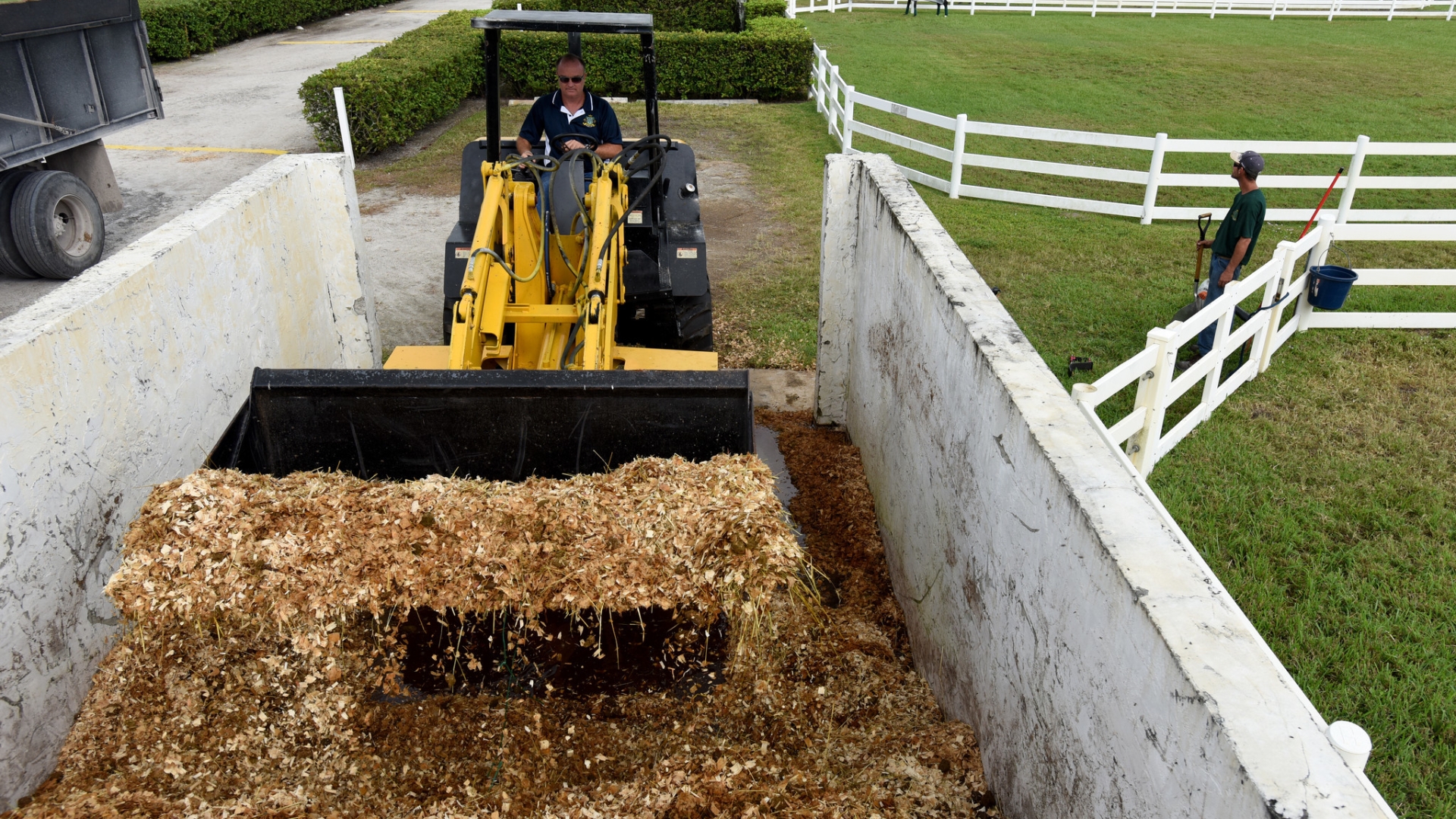As a horse owner, dealing with manure is an inevitable part of farm management. An average horse can produce over 50 pounds of manure per day. Over time, stall waste, soiled bedding, and pasture droppings can quickly pile up. Finding eco-friendly ways to properly dispose of or reuse all this manure is key.
Here are some of the best options for getting rid of horse manure
Spread it in Fields
Spreading manure directly on your pastures or other land is an easy and natural way to fertilize the soil The nutrients in manure will gradually break down and nourish grass and other vegetation.
To spread manure:
-
Use a tractor with a manure spreader for larger areas. For small farms, a wheelbarrow or cart may suffice.
-
Apply thin layers and only the amount your land requires based on soil tests.
-
Avoid spreading on actively grazed horse pastures to prevent parasite transmission.
-
Don’t apply before heavy rains that may cause runoff issues.
-
Add nitrogen fertilizer if your manure contains lots of sawdust or shavings.
Compost the Manure
Composting involves collecting manure and bedding waste in designated bins or piles. As organic matter decomposes, heat is generated to kill parasites and weed seeds. The end result is a rich, usable compost product.
Composting requires more labor but avoids polluting and makes use of the nutrients in manure. Finished compost can be used to fertilize your property or sold.
Effective composting relies on:
-
Achieving the right carbon-to-nitrogen ratio based on bedding types used.
-
Maintaining proper moisture levels.
-
Turning or aerating piles to facilitate decomposition.
-
Monitoring temperature to optimize microbial activity.
-
Allowing time for active composting and curing.
Haul It to a Commercial Facility
For small farms, hiring a service to haul manure away may be the simplest option. Evaluate companies that can provide:
-
Roll-off waste containers that are hauled away when full.
-
Dump trucks to transport manure in bulk to composting or biomass facilities.
-
Bagged manure pickup for centralized compost operations.
Before choosing a service, ensure they deliver to licensed, environmentally compliant composting or reuse facilities.
Offer It Free to Gardeners
Advertise that horse owners can take manure off your hands for garden fertilizer and compost. Require them to load and haul it themselves.
Screen interested people to find responsible landowners, not fly-by-night operations. Avoid contributors to runoff pollution by permitting pickup only during dry weather.
Connect with Local Farmers
Contact farmers in your area to see if they need manure for field fertilization. Offer access to your manure piles or delivery for a fee.
Seek farmers growing crops, hay, orchards or trees. Manure suits various agricultural operations. Clarify any timing needs for manure access.
Research Local Nurseries and Landscapers
Nurseries, garden centers, and landscaping companies may take manure for composting or use as a soil amendment. Contact them about:
-
Delivering or permitting pickup of bagged or bulk manure.
-
Charging drop-off fees vs. free collection for them to reuse the manure.
Consider Sustainable Disposal Methods
As a last resort for excess manure, explore responsible disposal options like:
-
Facilities using manure as renewable fuel for electricity generation.
-
Municipal yard waste collection services that compost manure.
-
Transfer stations accepting manure for standard landfilling.
Proper manure handling takes some research and planning. But reusing this abundant resource supports soil health, environmental quality, and sustainability on horse farms.
How we get rid of our horse manure
FAQ
What can I do with large amounts of horse manure?
What is the fastest way to break down horse manure?
Can I burn my horse manure?
Can you put horse manure in a dumpster?
How can I dispose of horse manure?
You can dispose of horse manure by finding options in your area through a Google search for “horse manure removal”. Alternatively, check with local garbage and shavings supply companies, as some offer services to pick up and haul manure for a fee.
How can horse manure be recycled?
Responsible disposal methods are key to mitigating these environmental risks. Recycling horse manure through composting is an excellent way to manage stable waste sustainably. This process not only reduces the volume of waste but also allows for its conversion into a nutrient-rich resource that can benefit soil quality.
How do you decompose horse manure?
Start piling your horse manure in the composter. To accelerate decomposition, keep your compost pile about as damp as a wrung-out sponge. You can regulate its moisture content by occasionally spraying it with a hose, and/or by covering it when necessary with a plastic tarp to protect it from excessive rains or drying sunshine. Aerate it.
What happens if you put horse manure in a pile?
A typical pile produces nasty byproducts like methane gas as the manure slowly molders inside it. You can avoid or at least minimize these problems with a good manure management program. And because horse manure is a source of nutrients for plants, it can be a valuable resource.
- A Complete Guide to Caring for Yuki Cherry Blossom Shrub - January 23, 2025
- Identifying Red Hot Poker Seeds: What to Look For When Harvesting Torch Lily Pods - January 23, 2025
- A Complete Guide to Harvesting Evening Primrose Seeds - January 23, 2025

